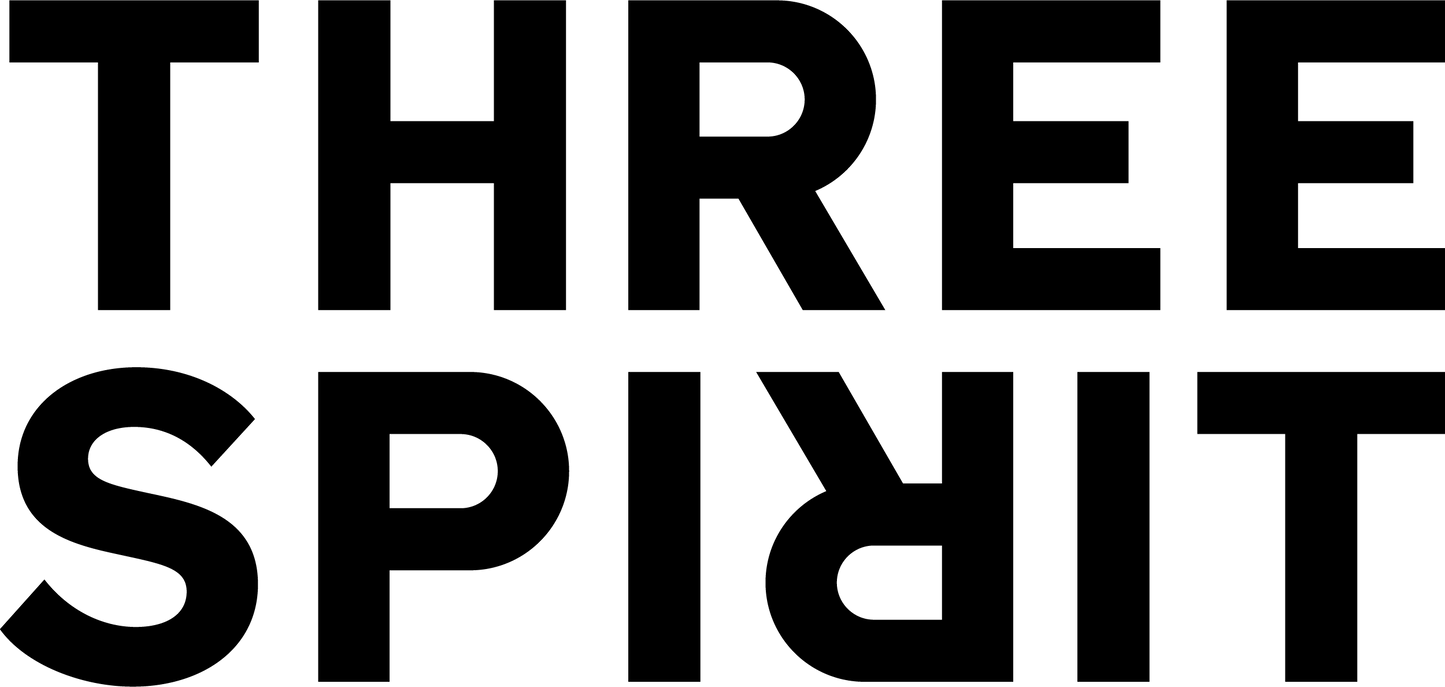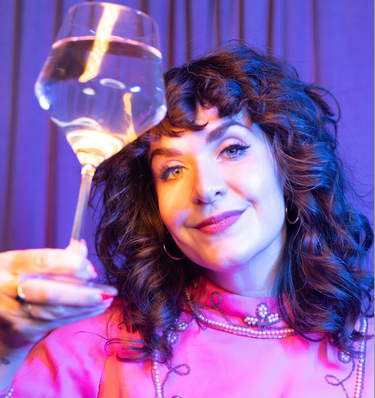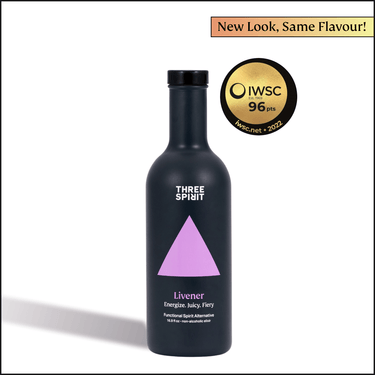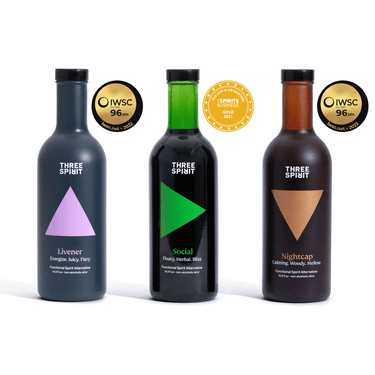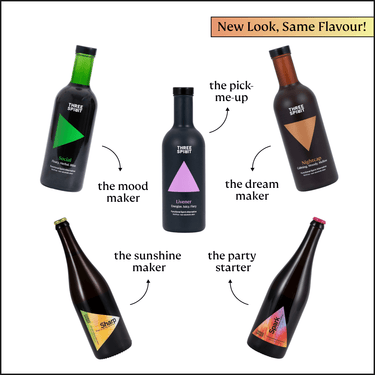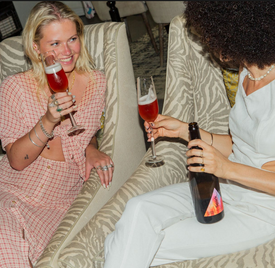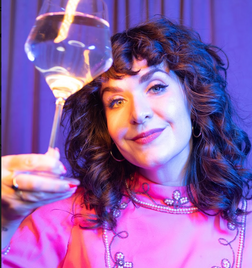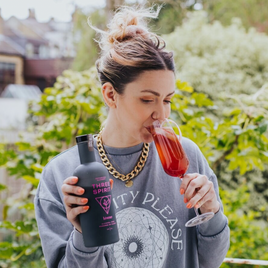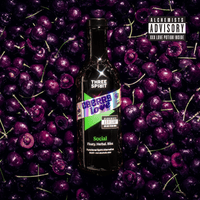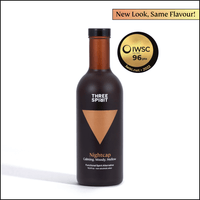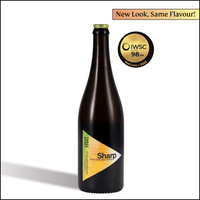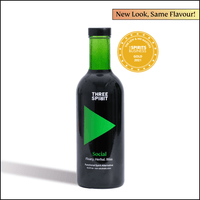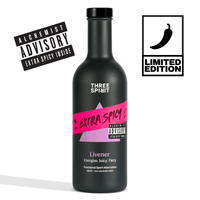Back in July I shared a bit about my experience going alcohol-free and some of the most common questions I’ve received from across the internet. If you’re just starting to look into this, I recommend starting with that piece and coming back here.
For Sober October, Three Spirit and I decided to dive in a bit deeper with more questions I commonly receive. I hope these are helpful to you wherever you are at in your alcohol-free or sober curious journey! I am no expert in anything outside of my own experience, but if any of the work I’ve done can be helpful for others looking to change their lifestyle it would make me so happy!

How do you deal with social situations and being around others drinking?
Adopt the mantra It’s not that I don’t GET to drink, it’s that I don’t NEED to drink.
Shifting your mindset from alcohol being good or a reward to it being something dangerous, unhealthy and unnecessary for your happiness is the key to feeling less stressed or like you’re missing out. Once you’re in the right mindset, the rest falls into place.
Get an alcohol-free drink in your hand immediately. If it’s a party at someone’s home, show up with your own (FUN) drinks so you’re guaranteed to have something other than water.
Have an exit strategy or or plan for leaving so you’re free to escape if you’re feeling really uncomfortable. In my early sobriety I would tell the host immediately on arrival that I might only stay for 30 minutes and leave without saying goodbye. People understand. And even though I rarely ended up needing that escape hatch, just knowing it was there helped.
Remember you’re doing this for FUTURE you, not necessarily present you.
ALSO - Start actively pursuing activities with friends that don’t revolve around alcohol. Be the first to suggest something fun and new. My social life is honestly so much more varied and interesting now than it ever was when I just got drinks with people. Grabbing drinks has become the go-to suggestion for meeting up, but if you give it just the tiniest bit of extra thought, there are so many more fun and interesting things to do when meeting up with people. Just a few suggestions:
Go on a hike or to a yoga class (and grab coffee after)
Taking a class of some kind. Ceramics, figure drawing, hip hop dancing, water colours are all ones I’ve tried.
- Sound bath
- Picnic
- Roller skating
- Thrift shopping
- Board game night
- Escape room
- Mani/pedis
- Live show like a concert, stand-up set or play,
- Visit a gallery or museum,
- Beach day,
- Park hang,
- Scenic walk.
And if all else fails, finding a bar with a great mocktail menu or going out for coffee and pastries always works.

Do you feel better?
TLDR: I feel the best I’ve ever felt in every way.
Mentally:
Living a life without alcohol feels like the mental equivalent of waking up in clan sheets every day. One of my favourite lines from Sarah Levy’s book Drinking Games is “As I got farther away from my last drink, I got closer to my most authentic self.” That couldn’t ring more true for my personal experience. Every day that I don’t drink is one step closer to the me I’ve always wanted to be.
I have probably about 75% less anxiety than I used to, and I’ve dealt with other emotional and mental issues through CBT therapy, journaling, meditation, and getting on a light antidepressant. Giving up drinking is the one step I took that created a domino effect into dealing with everything else in my life that I needed to.
Now that I’ve escaped the shame cycle and I’m always in control of my own behavior and actions, I feel a new and profound level of confidence and sense of calm.
Physically:
After giving up drinking, I found myself with a LOT more time, energy and money than I was used to having. I also needed to find all new ways of coping with anxiety, boosting my mood and breaking up my days. Enter pilates.
As someone who has never - and I do mean never - had a consistent exercise routine for more than a couple months, that all changed once I didn’t drink anymore. I discovered reformer pilates and hot yoga classes and was hooked. After 33 years of never working out with regularity, I now attend 4 workout classes a week and find myself actively missing working out when I skip a few days. I go for long walks, do stretching at home, and overall feel SO much better in my body.
About a year in with my new exercise habits and changing nothing about my eating habits other than what intuitively happened when I wasn’t guzzling glasses of sugar every day and the way I ate as an after effect, I woke up to realize I had lost 45 pounds without trying. I was exercising for sanity not vanity, and the physical results were just an added benefit.
I have a completely different relationship with my body than I did two years ago, and at 35 I feel more confident, strong and healthy than I have in my entire life. I wear shorts now!
How do you deal with drinking at work events?
We don’t need to get too socio-political here, but at it’s core, corporate culture in America is another system that is often used to control people and funnel out individuality. Having spent the last seven years in the corporate world, I know all too well what it’s like to go to open bar office parties, company mixers and industry networking events where every single person seems to be drinking.
First off: Realise people don’t actually care or pay that much attention. If you have a drink in your hand - any drink - people don’t really notice. (My go-to when I don’t want to attract any attention is a soda water with lime. 99% of the time people just assume it’s a vodka soda and ask no questions.)
Secondly: Remind yourself that it will actually be much better for your career to navigate these events with a clear head. You will impress colleagues more, remember details, names and conversations, and never have to worry about embarrassing yourself at a work event.

Thoughts on Alcoholic Anonymous?
Alcoholics Anonymous is a program that has helped millions of people get sober and if you’re looking for support, I suggest trying out at least one meeting. There are a lot of wonderful, kind, helpful people in AA that are there to give you support you might need.
That being said, the program isn’t for me.
I’ve been to a couple meetings when I was feeling particularly isolated, and everyone I met there was incredibly kind and supportive, but I still don’t find AA to be what helps me on my journey of not drinking.
I think it’s great for a lot of people - specifically those seeking community or who self identify as addicts. I’m lucky that I have a pre-existing support group of friends who are there for me to talk to, a sober father who’s basically acted as a sponsor, a husband who essentially quit drinking with me, and I don’t identify as an addict, but someone with alcohol use disorder or moderation issues.
AA has a largely bigoted and patriarchal history and foundational roots, and the program at large tends to have a very rigid, black & white thinking about alcoholism and sobriety. Some chapters go as far as not allowing antidepressants for members. I think that AA has become our society’s only mainstream resource for recovery, and that is one of the huge contributing factors to why so many people don’t want to get help. I know that I personally would have sought out help sooner if I felt there was another more relaxed, open-minded program. In her incredible book “Quit Like a Woman,” Holly Whittaker goes into elaborate detail and history of Alcoholics Anonymous, it’s problematic foundations, and the complexities of it being our society’s main resource.
If you’re really struggling to stay sober, definitely go check out a meeting. They have tons of different kinds, so I recommend picking one tailored to a demographic that makes you feel safe (women only, agnostic, LGBTQ+, etc) and find one recommended for newbies. Worst case scenario you learn a bit about the sober community and lose a single hour of your time.

How can I support a friend who’s newly sober? (Or ask my friends to help me?)
Maybe you’re reading this because you yourself are newly sober or sober curious. Or maybe you’re reading it because someone close to you is. Either way, thanks for being here! The biggest thing you can do to support a newly sober person in your life is to TALK TO THEM. People often don’t know what to say to sober friends, so they just don’t say anything. Don’t do that. Just ASK THEM how it’s going! Ask if they need anything! And perhaps most importantly: FOLLOW UP. Giving up alcohol is a life-long commitment that takes consistent work. By checking in about it regularly, the person in your life will feel your ongoing support which is desperately needed.
Other things I recommend:
- Put their sober date in your calendar and send them congrats messages every month/year/milestone.
- Offer to go to an AA or Alanon meeting with them if you think that would help
- Always have AF drinks for them at your house (nothing is a bigger bummer than being newly sober and going to a dinner party where everyone else is drinking wine and you’re stuck with tap water.)
- Read some Quit Lit books to help better understand what they’re going through.
- Get them a gift. Some lovely things my people have gotten me: A beautiful mocktail recipe book, flowers, AF wines, cards with kind and encouraging words, and a custom one-year chip.
- Suggest non-drinking activities when you’re making plans.
- Follow some sober IG or TikTok accounts and send them memes and insights.
- Give lots of positive reinforcement and check-ins. Let them know that they can call you any time if things get rough (and mean it.)

